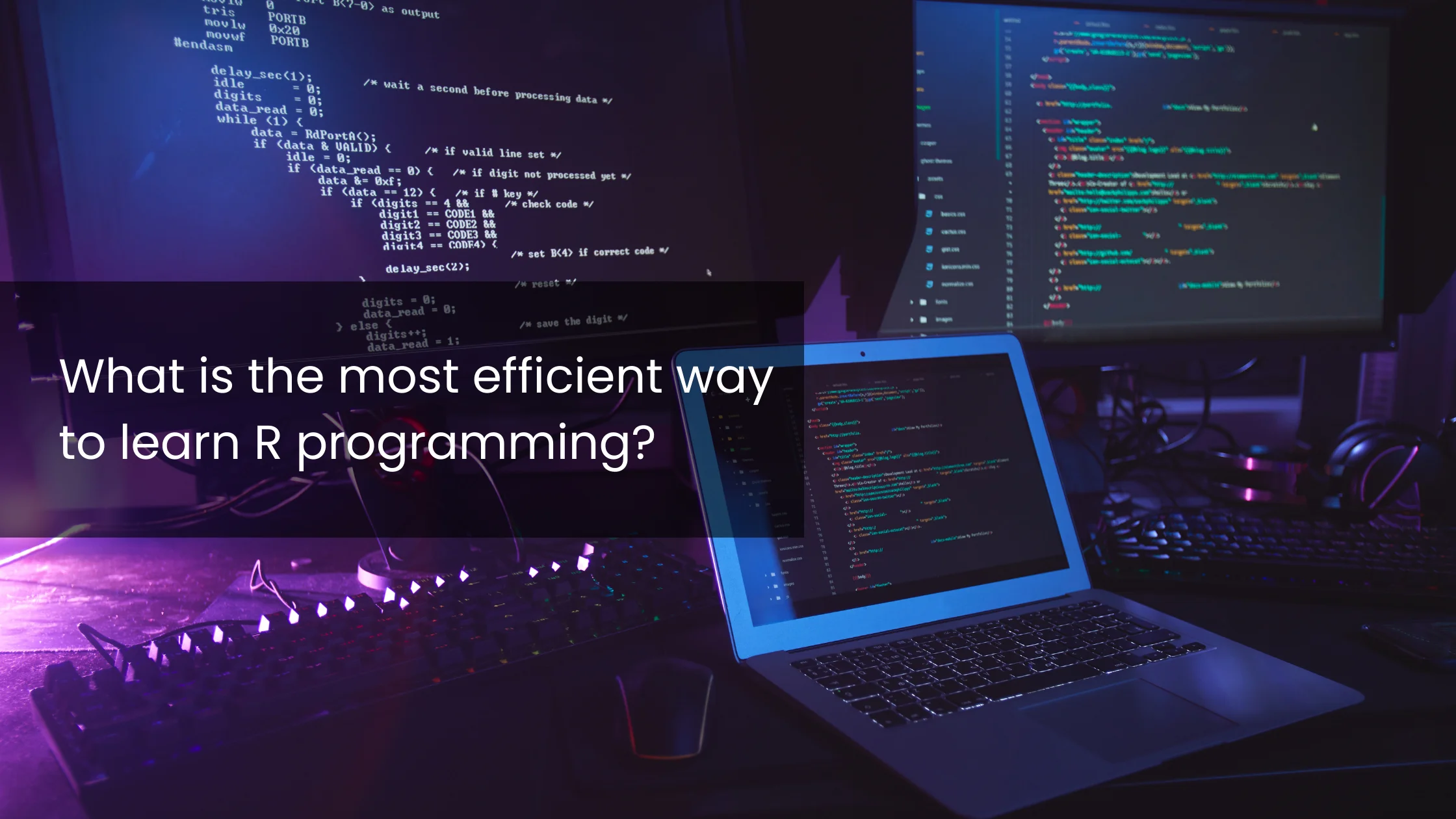 Embarking on the journey to learn R programming can seem daunting, but with the right approach, it can be both enjoyable and highly rewarding. R is a powerful language specifically designed for statistics and data analysis, making it an essential tool for data scientists, statisticians, and analysts. Let's explore the most efficient ways to learn R programming, ensuring you maximize your learning and apply your skills effectively.
Embarking on the journey to learn R programming can seem daunting, but with the right approach, it can be both enjoyable and highly rewarding. R is a powerful language specifically designed for statistics and data analysis, making it an essential tool for data scientists, statisticians, and analysts. Let's explore the most efficient ways to learn R programming, ensuring you maximize your learning and apply your skills effectively.
Step 1: Understand the Basics
Before diving into complex analyses, it's crucial to understand the fundamentals of R. This includes learning about R syntax, basic data types, and how to perform simple operations. Here are a few tips to get started:
- Install R and RStudio: RStudio is a popular integrated development environment (IDE) for R that makes coding easier. You can download R from CRAN and RStudio from its official website.
- Familiarize Yourself with R Documentation: The R documentation is an invaluable resource. It provides detailed explanations of functions and packages, helping you understand how to use them effectively.
Step 2: Utilize Online Courses and Tutorials
Online courses and tutorials are excellent resources for structured learning. They provide step-by-step guidance, helping you build a solid foundation in R programming. Here are some recommended approaches:
- Enroll in Comprehensive Courses: Look for courses that cover everything from basic syntax to advanced data manipulation and visualization. The Advanced Data Science and Machine Learning Masterclass offers in-depth knowledge, perfect for those looking to master R.
- Follow Video Tutorials: Platforms like YouTube and Coursera have numerous video tutorials that can guide you through the learning process. Videos can be particularly helpful for visual learners.
Step 3: Practice, Practice, Practice
Programming is a skill best learned by doing. Regular practice helps reinforce what you've learned and makes you more comfortable with the language. Here’s how to incorporate practice into your learning routine:
- Work on Real Projects: Apply your skills to real-world problems. This could be anything from analyzing a dataset you’re interested in to participating in data science competitions on platforms like Kaggle.
- Complete Exercises: Websites like DataCamp offer interactive R exercises that allow you to practice coding in a guided environment. This hands-on approach is crucial for solidifying your understanding.
Step 4: Explore R Packages
R's strength lies in its extensive ecosystem of packages. These packages extend the functionality of R, allowing you to perform a wide range of tasks. Some essential packages to explore include:
- tidyverse: A collection of R packages designed for data science, including ggplot2 for data visualization and dplyr for data manipulation.
- caret: For machine learning and predictive modeling.
- shiny: For building interactive web applications directly from R.
Exploring and learning how to use these packages can significantly enhance your productivity and capabilities in R.
Step 5: Join the Community
The R community is vibrant and supportive. Engaging with the community can provide you with additional resources, support, and networking opportunities. Here are some ways to get involved:
- Join Online Forums: Websites like Stack Overflow have active R communities where you can ask questions, share knowledge, and learn from others.
- Attend Meetups and Conferences: Participating in events like R User Groups (RUGs) and conferences like useR! can help you connect with other R users and stay updated with the latest developments in the field.
Step 6: Stay Updated
The field of data science is constantly evolving, and so is R. Staying updated with the latest developments, new packages, and best practices is essential for continuous learning and improvement. Follow blogs, subscribe to newsletters, and regularly check sites like R-bloggers for the latest updates.
Frequently Asked Questions
What is the first step to learning R programming?
Start by installing R and RStudio. Learn basic syntax, data types, and operations. R’s official documentation and beginner tutorials are great resources.
Are there any beginner-friendly courses to learn R?
Yes! Enroll in the Advanced Data Science and Machine Learning Masterclass by Cinute Digital for a practical and structured learning experience.
Do I need prior coding experience to learn R?
No. R is beginner-friendly. Most tutorials are step-by-step and tailored for people new to programming or data science.
What are some essential R packages to learn?
Must-know packages include tidyverse (ggplot2, dplyr), caret for ML, and shiny for interactive web apps. These greatly expand R's capabilities.
How do I stay updated with the R ecosystem?
Follow R-bloggers, attend R meetups or useR! conferences, and join forums like Stack Overflow or LinkedIn groups.
Conclusion
Learning R programming efficiently involves a mix of understanding the basics, utilizing structured courses, practicing regularly, exploring R’s rich ecosystem of packages, engaging with the community, and staying updated with the latest trends. By following these steps, you'll be well on your way to mastering R and leveraging its powerful capabilities for data analysis and beyond.
Ready to start your R programming journey? Dive into our Advanced Data Science and Machine Learning Masterclass to gain comprehensive knowledge and skills in R.